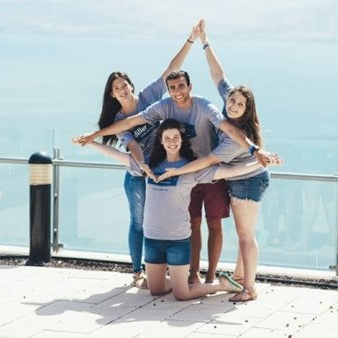
SA

Building tomorrow’s Jewish leaders
JORDAN MOSHE
The programme aims to effect positive change by building future leaders in our country. Participants share a common vision: improving the world by improving themselves.
Comprising 32 Jewish communities around the world, the Diller fellowship affords more than 600 10th and 11th grade students the opportunity to better understand who they are and what constructive role they can play in the world. Through workshops, seminars, shabbatons and intensive engagement in South Africa and in Israel, these students are able to hone their leadership skills.
Says Lipschitz: “Every person possesses weaknesses or skills that, unless managed, can hold them back.
“Today a leader is not someone who will order people under them around. It is someone who will recognise the different strengths in each person in their group and allocate each person tasks that will suit them, while at the same time still giving them space to use their talents in achieving the overall goal,” he says.
Diller Johannesburg co-ordinator Gilad Spitalnik agrees, adding: “One of the most important things about being a leader is that you have to care about whatever it is that you’re involved in. Generally, that’s people. There needs to be integrity – leading is generally done by example, not by word. A leader is not necessarily a head of a country, a community or an organisation, but someone who has a responsibility to other people.”
The fellows are selected through a four-hour interactive workshop.
“They have to work together to achieve a certain outcome, with both group and individual targets. It’s what happens in between that counts,” Spitalnik says.
Mikaela Goldsmith, like Lipschitz, is from King David Linksfield and was part of his group. She says: “Diller gave us a purpose, challenged us and stretched our minds. It taught me acceptance, of myself and the people around me whose opinions differ.”
Lipschitz says: “Since the skills and tools we are equipped with can be applied to everyday life, I use them every day. I also actively try to give back to the community and to Diller through a project like Ubuntu or by being a junior councillor.
“Anyone can learn how to lead by gaining knowledge from trial and error, from experience and by learning from other leaders.”
Goldsmith adds: “Every day we are faced with opportunities to lead or be led. Leading can be something as small and as big as voicing your opinion, because you never know who shares it, and you as a young believer could lead them into a new voice.”
Sharing their enthusiasm are Raquel Nathan and Adam Danilowitz, incoming fellows for 2018 from King David Victory Park. Nathan wants to sharpen her Jewish identity and better prepare herself to lead the community in future. “Today we live at the intersection of hope and despair. People must navigate these extremes with help from their leaders, who must direct them to the best outcomes. The youth of today are so persuadable, but I believe they will gravitate towards good with the help of principled leadership.”
The role of Jewish youth in particular is crucial, says Danilowitz. “People of today are turning away from their roots and are finding other attractions. It is up to the youth to refocus and inspire future generations and show how Judaism plays integral part of our lives. Leaders in 2018 need to put aside their egos and personal agendas and take on the responsibility of caring about future generations. Everyone is a leader and a follower all the time.”
These young people are ready to lead and aware that they are part of something much bigger than themselves.




